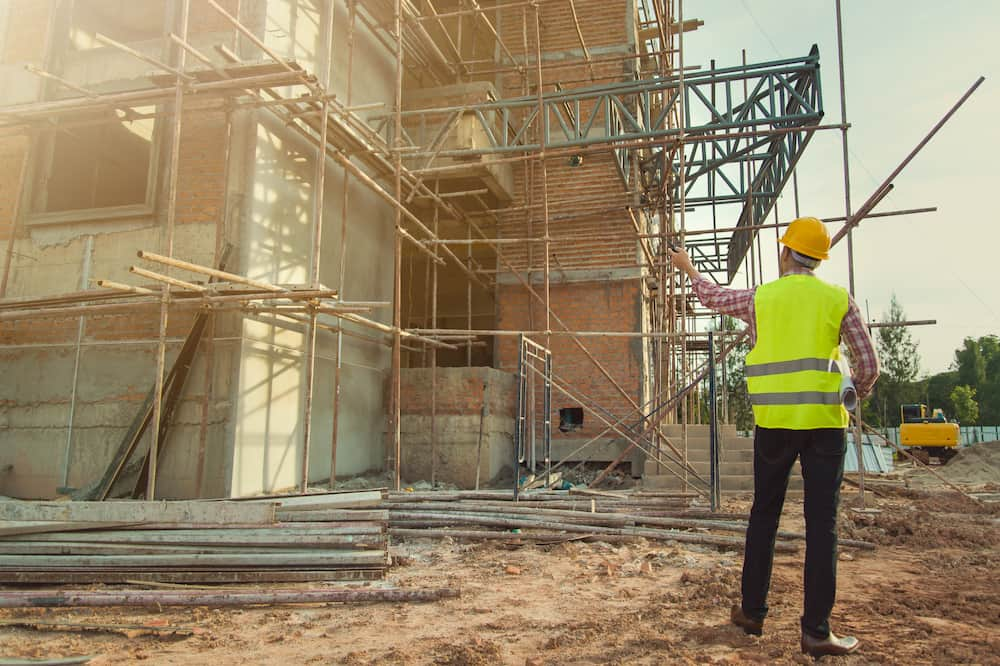Within the construction industry, efficiency, reliability, and cost-effectiveness are some of the most important features that hold the most significance.
Projects often involve numerous stakeholders, complex logistics, and a multitude of variables that can impact timelines and budgets.
Many industry professionals turn to frameworks to navigate this landscape – structured agreements designed to streamline processes, enhance collaboration, and drive successful outcomes.
Among these frameworks, Procure Partnerships Framework (PPF) stands out as a leading solution, offering a comprehensive approach to procurement for public sector organisations.
But what exactly are frameworks, and how do they differ? Read on as we explore the different types of frameworks in construction and shed light on their nuances and benefits.
What Is a Framework in Construction?
A framework in construction is a structured agreement or approach designed to facilitate the procurement and delivery of projects.
It provides a set of guidelines, procedures, and pre-approved suppliers or contractors to streamline the process and ensure efficiency, transparency, and accountability.
Frameworks vary in scope and complexity, ranging from traditional procurement methods to innovative partnership models.
They may include design and build contracts, construction management agreements, framework agreements, public-private partnerships, performance-based contracts, alliance contracts, and frameworks for innovation.
The key purpose of a framework is to optimise project delivery by promoting collaboration, risk-sharing, and best practices among stakeholders.
By standardising processes and reducing administrative burden, frameworks help clients achieve their objectives while maximising value for money and minimising risks.
Ultimately, frameworks play a key role in shaping the construction industry’s landscape, driving innovation, sustainability, and long-term success.
The Different Types of Frameworks in Construction
In the construction industry, frameworks play a crucial role in streamlining procurement processes, driving efficiency, and ensuring compliance.
Several types of frameworks cater to various project requirements and procurement strategies. Traditional frameworks, such as single-stage and two-stage tendering, offer familiarity and flexibility, allowing clients to engage contractors based on their specific needs and preferences.
Design and build frameworks provide an integrated approach, combining design and construction services required under a single contract, thereby simplifying project delivery and minimising risks.
Procure Partnerships Framework offers a collaborative procurement model tailored to public sector organisations. Find out more about the different types of frameworks in construction below.
1 – Traditional Procurement
Traditionally, construction projects have been procured through a competitive tendering process, where the client selects a contractor based on the lowest bid.
While this approach may seem straightforward, it often leads to negative relationships, disputes, and cost overruns. Additionally, the focus on price alone can compromise quality and innovation.
2 – Design and Build
In the design and build framework, the client contracts with a single entity, typically a design-build contractor, who is responsible for both the design and construction phases of the project.
This integrated approach offers several advantages, including faster delivery, cost savings, and a reduced administrative burden for the client. Design and build frameworks promote collaboration and accountability by consolidating responsibilities under one roof.
3 – Construction Management
Construction management frameworks involve hiring a construction manager to oversee the project on behalf of the client.
Unlike traditional procurement, where the contractor is selected based on a fixed price, construction management allows for greater flexibility and the involvement of multiple contractors and subcontractors.
This collaborative model enables early involvement of key stakeholders, proactive problem-solving, and optimised project delivery.
4 – Framework Agreements
A framework agreement provides a pre-approved list of suppliers or contractors that clients can engage with for specific types of projects.
These construction framework agreements streamline the procurement process by eliminating the need for repetitive tendering and negotiation, saving time and resources for both clients and suppliers.
Frameworks also promote consistency, transparency, and compliance with regulatory requirements.
5 – Public-Private Partnerships (PPP)
Public-private partnerships involve collaboration between government entities and private sector companies to finance, develop, and operate public infrastructure projects. PPP frameworks leverage the expertise and resources of both sectors to deliver projects more efficiently and cost-effectively.
PPPs can ultimately incentivise innovation, performance, and long-term sustainability.
6 – Performance-Based Contracts
Performance-based contracts focus on outcomes rather than inputs, incentivising contractors to achieve specific performance targets, such as quality, safety, and timeliness.
Performance-based contracts encourage innovation, efficiency, and continuous improvement. These contracts are particularly well-suited for complex projects with uncertain requirements or evolving specifications.
7 – DPS (Dynamic Purchasing Systems)
DPS is an open market that allows ongoing supplier registrations – so businesses can join at any time. It is essentially an online marketplace where suppliers can acquire contracts.
It can benefit buyers and suppliers, giving buyers the chance to access a range of pre-qualified suppliers. Ultimately, DPS can streamline the procurement process, making it responsive, cost-effective and agile.
8 – Framework for Innovation
Innovation frameworks focus on driving creativity, experimentation, and continuous learning within the construction industry. These frameworks provide a platform for sharing best practices, adopting new technologies, and embracing emerging trends.
Framework agreements encourage a culture of innovation. They empower stakeholders to adapt to changing market dynamics, customer preferences, and regulatory requirements.
Working With Procure Partnerships Framework
The construction industry offers a diverse spectrum of frameworks tailored to meet the evolving needs and challenges of stakeholders.
From traditional procurement methods to innovative partnership models, each framework brings its own set of benefits and considerations.
The Procure Partnerships Framework, with its emphasis on collaboration, efficiency, and value for money, represents a promising approach to procurement in the modern era.
By understanding the different types of frameworks available, construction professionals can make informed decisions that drive success and sustainability in their projects.
We help public sector organisations deliver end-to-end project success through proactive, and procurement methods. Promoting collaboration and partnership between clients and suppliers is what we do best. Foster trust, communication, and mutual understanding throughout the project lifecycle.
Working with the Procure Partnerships Framework offers public sector clients in the construction industry a strategic and efficient approach to procurement.
When you utilise a pre-qualified pool of contractors and consultants, you can access expertise, innovation, and value for money while streamlining the procurement process and driving project success. We can enable you to achieve your project goals effectively and sustainably.

In Conor’s 7/8 years in the industry, he has emerged as an expert in procurement, demonstrating a profound understanding of structuring Procure Partnerships Frameworks, deciphering main contractor/consultant procurement intricacies, assessing competitor offerings, and steering special projects and new product development.


